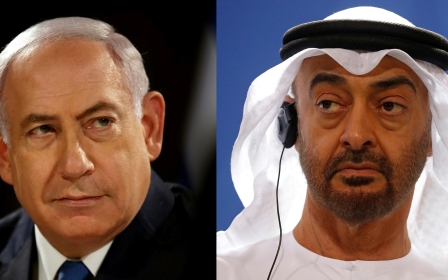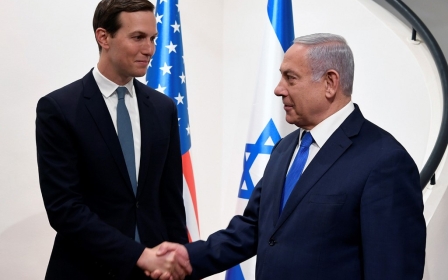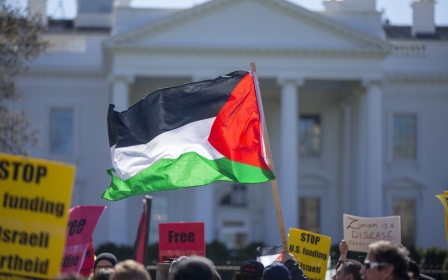Israel-UAE deal: How the Middle East reacted
US President Donald Trump on Thursday proudly announced a historic peace deal between the United Arab Emirates and Israel.
Trump also said Israel would pause plans to annex parts of the West Bank but critics of the deal fear Tel Aviv will renege on this part of the deal.
The peace deal paves the way for normalisation of relations between the two countries and makes the UAE the third country in the Arab world to normalise relations with Israel.
Here's a rundown of how countries across the Middle East and North Africa reacted to the latest announcement:
Bahrain
New MEE newsletter: Jerusalem Dispatch
Sign up to get the latest insights and analysis on Israel-Palestine, alongside Turkey Unpacked and other MEE newsletters
Bahrain praised the normalisation of ties between Israel and the UAE and welcomed the move, according to the Bahrain News Agency.
Commenting on the deal, a Bahraini spokesperson said: "The kingdom welcomes the diplomatic efforts made by the United Arab Emirates. This historic step will contribute to strengthening stability and peace in the region."
Egypt
Egyptian President Abdel Fatah al-Sisi praised the efforts and said he hoped the deal to halt Israel's annexation would bring "peace" to the Middle East.
"I appreciate the efforts of the architects of this agreement for the prosperity and stability of our region," Sisi said in a tweet.
Iran
Iran dubbed the Israel-UAE deal as an act of "strategic stupidity" and warned Abu Dhabi to accept any consequences of the historic agreement.
"This is an act of strategic stupidity from Abu Dhabi and Tel Aviv which will undoubtedly strengthen the resistance axis in the region," the Iranian foreign ministry said on Thursday.
"The oppressed people of Palestine and all the free nations of the world will never forgive the normalising of relations with the criminal Israeli occupation regime and the complicity in its crimes."
Jordan
Jordan did not welcome or condemn the deal but said its impact will depend on Israel's actions.
Reacting to the decision, Foreign Minister Ayman al-Safadi said that "the impact of the deal on peace efforts is linked to the actions Israel will take".
He added: "[Jordan backs] any real effort that contributes to achieving comprehensive and just peace that ends Israeli occupation and meets the legitimate rights of the Palestinian people."
Oman
Oman has welcomed the agreement in an official statement from the Ministry of Foreign Affairs. A ministry spokesperson expressed "the Sultanate’s support for the decision by the United Arab Emirates regarding relations with Israel within the framework of its historic joint declaration with the United States and Israel."
Palestinian Authority
The Palestinian Authority announced the "immediate" recall of its ambassador to the United Arab Emirates in protest over the country's normalisation deal.
"At the request of President Mahmoud Abbas, the Palestinian foreign ministry has decided to immediately recall its ambassador to the United Arab Emirates," Palestinian foreign minister Riyad al-Maliki said in a statement to AFP.
Turkey
Ankara condemned the deal on Friday and described the deal as a betrayal of the Palestinian people.
"While betraying the Palestinian cause to serve its narrow interests, the UAE is trying to present this as a kind of act of self-sacrifice for Palestine," the Turkish foreign ministry said.
"History and the conscience of the people living in the region will not forget and never forgive this hypocritical behaviour."
Middle East Eye delivers independent and unrivalled coverage and analysis of the Middle East, North Africa and beyond. To learn more about republishing this content and the associated fees, please fill out this form. More about MEE can be found here.




